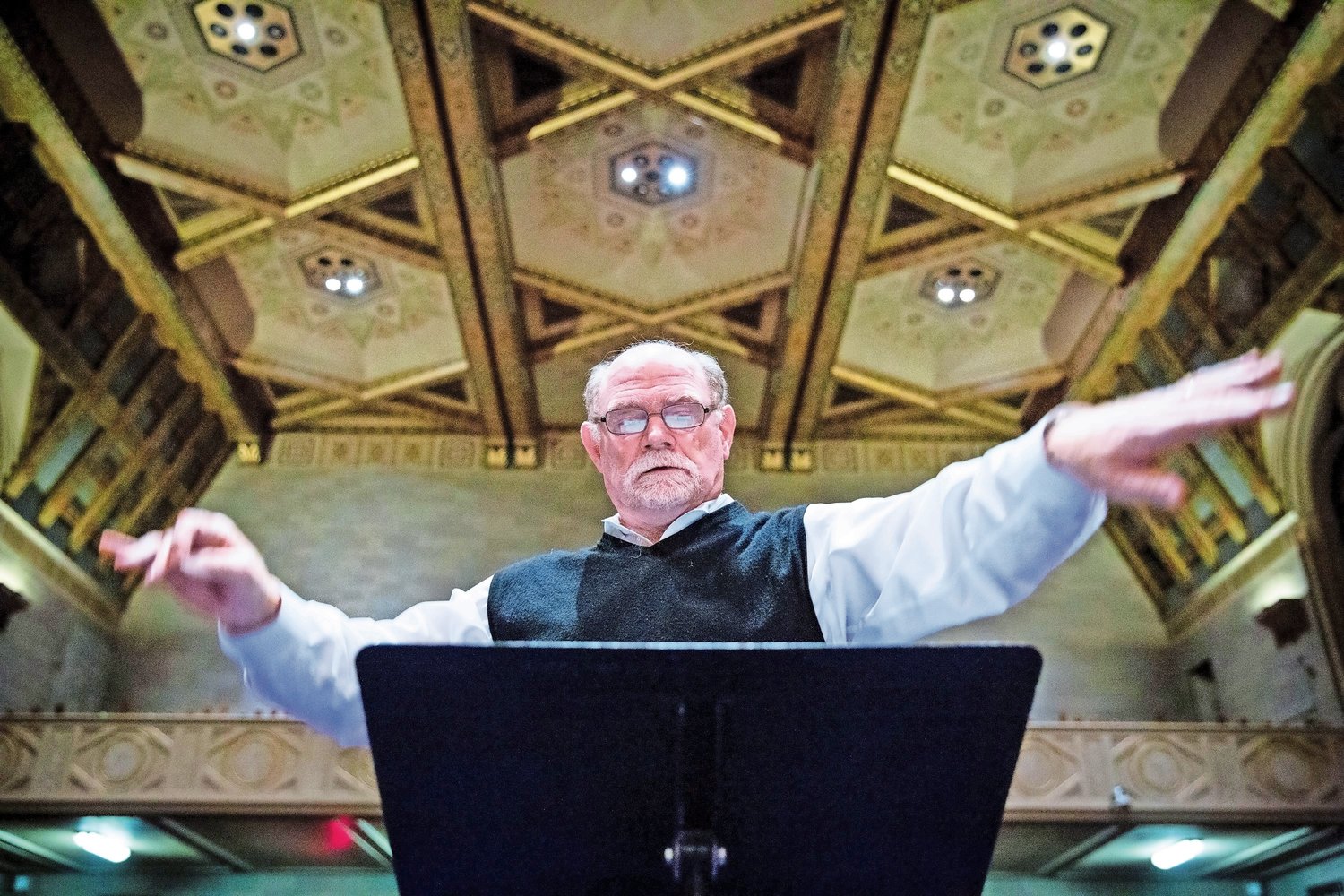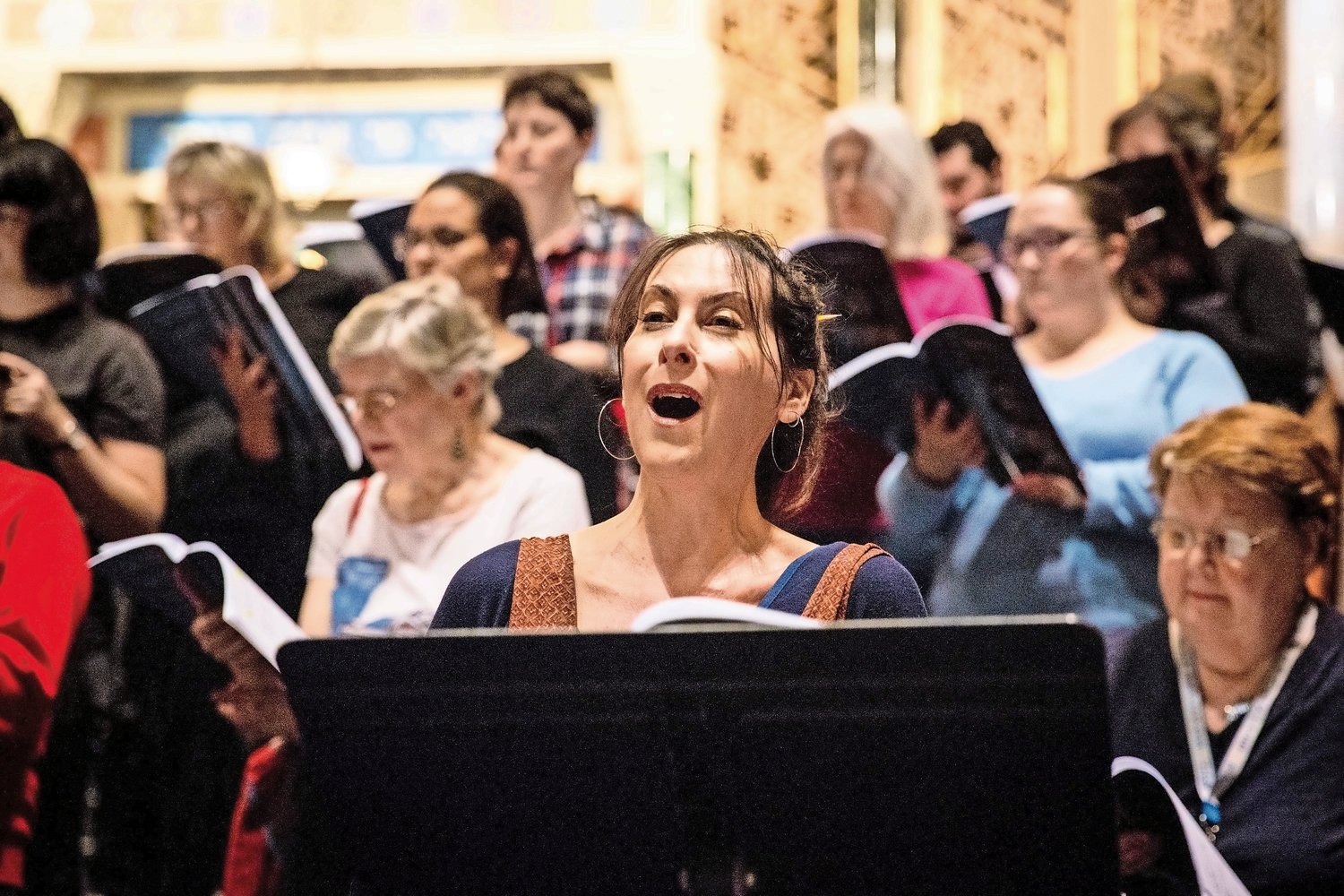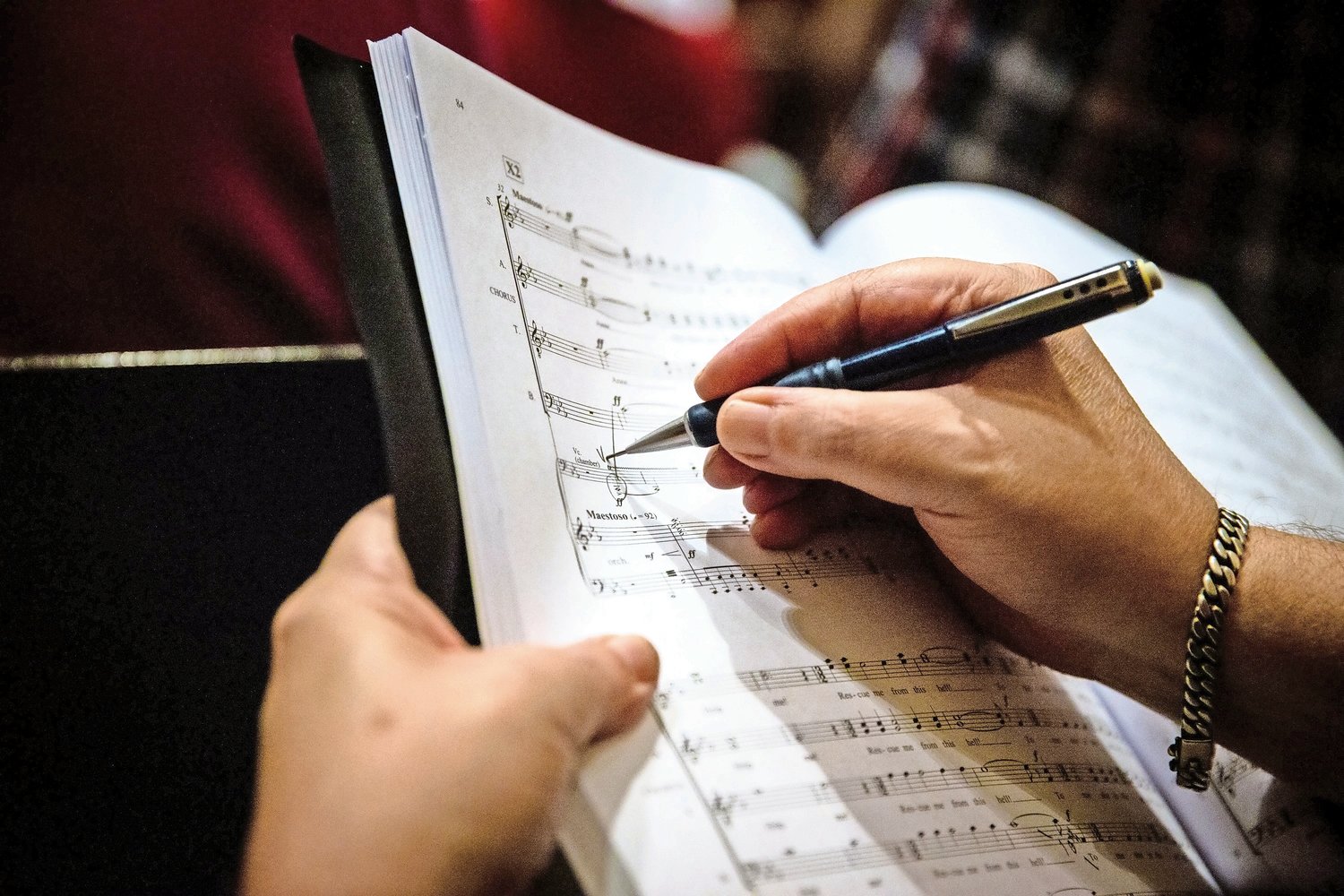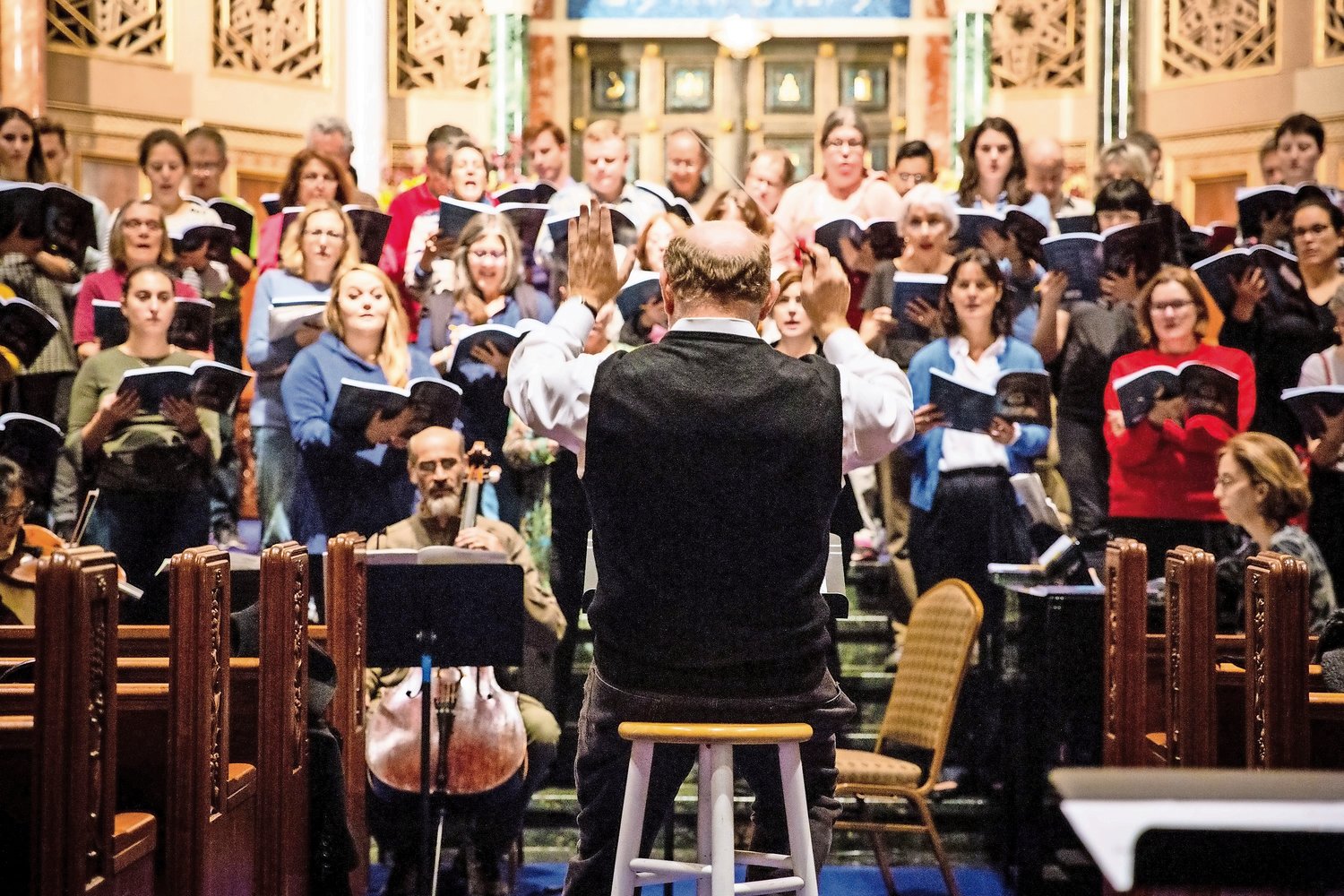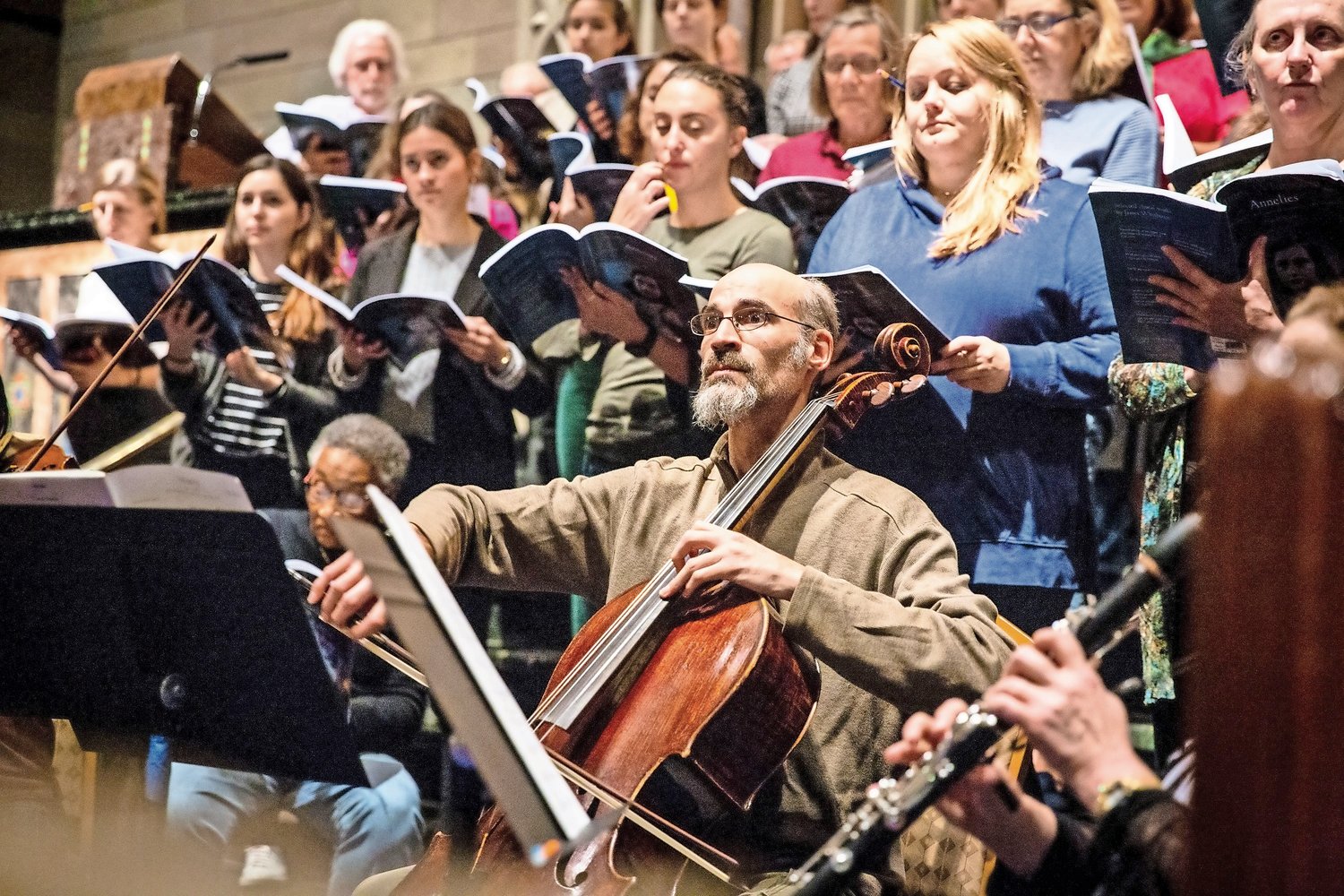Anne Frank’s story gets Riverdale touch on way to stage
Ilana Davidson never thought Anne Frank would be a constant presence in her life.
Between living only a mile or so from Frank’s home in Holland for a few years, to being considered for the first performance of “Annelies” — a choral concert composed by James Whitbourn based on “The Diary of Anne Frank” — in January 2005, Davidson has seemingly always had the young girl in the back of her mind in some capacity.
So when Leah Kaplan, a Riverdale resident and member of the Riverside Choral Society in Manhattan, approached her about auditioning for a solo part in “Annelies” for the choral group earlier this year, she didn’t think twice about it — and immediately got the part.
“It’s wonderful that this piece came into my life again,” Davidson said.
Now Davidson is part of the Riverside Choral Society’s “Annelies” concert at Congregation Rodeph Sholom in Manhattan on Nov. 11. Davidson portrays the titular role of Annelies, which is Frank’s full first name.
“It’s more honoring her and trying to channel her without pretending that I am her,” she said.
The concert is a little over an hour, with the choral society’s performance shared with parts of Frank’s diary along with a visual component of slides that correspond to everything they’re singing.
“The chorus is such an integral part of this piece because they’re also singing her words,” Davidson said. “But it’s kind of a dialogue between Anne and the chorus, and I feel that the chorus is serving in a way as the narrator in what’s going on at the time.”
“Annelies” was something Kaplan discovered a few months ago and found it so moving that she brought it to the attention of Patrick Gardner, the choral society’s conductor.
“I thought it would be a good vehicle for us to reach people that we haven’t reached before in our usual concerts,” Kaplan said.
Once Gardner heard Kaplan’s and other members’ excitement to bring “Annelies” to the stage, the team got to work into making it a reality. Part of Kaplan’s job was to advertise the event to all sorts of people and organizations.
So she did just that, reaching out to educational institutions like Manhattan College’s Holocaust, Genocide and Interfaith Education Center, and contacting the German and Dutch consulates.
Kaplan’s other focus in her outreach was to encourage children to attend the concert in order to educate them about the reality of the Holocaust.
“I wanted them and others to understand that the Holocaust is not just a historical period that’s in a book,” she said.
In terms of getting people interested in attending the concert, Kaplan said it wasn’t difficult once she uttered the name Anne Frank.
“I’m finding when I’m reaching out to people, they’re positive because there’s some sort of a real association with this Anne Frank who was so perceptive, so precocious, so insightful about everyone around her,” Kaplan said.
Although there is no “overt political statement,” in “Annelies,” according to Gardner, he can’t deny how the Holocaust’s impact on the world is still significant today.
“In the current political climate, where some people seem to take the freedom to exist, the freedom to hold your own religious viewpoints, the freedom to hold your own political viewpoints for granted, I think that’s one thing I’ve been able to see is how this piece can make us more aware when those ideals are threatened,” Gardner said. “At the same time, it’s also just a very compelling drama, and I think people will enjoy hearing the drama of what she’s going through and take from (it) whatever they will in terms of its political and cultural impact.”
For Davidson, it’s about how the political landscape “needs art to really give us a chance to be thoughtful, to commemorate, and to honor difficult times” and “find beauty and meaning in different circumstances.”
In preparing for “Annelies,” Davidson found that it was a major responsibility and to “not be selfish” at times when she believes parts of the concert are moving and emotional. In mitigating that, she tries to get any tears she has out of the way before singing.
“When I’m performing, I (want to) be as generous as possible to the audience so that they can experience the emotion in the story, in the situation, and I can be able to present that without having (my) emotions getting in the way,” she said.
When the concert is long over, Gardner hopes the audience takes what they’ve watched home with them.
“Perhaps it’ll inspire them to read the diary again,” he said. “I just finished reading it again, and I find it really compelling both for the history that first comes to mind … but also, it’s really quite a beautiful picture of a young girl in the 1940s trying to be herself, and I find that part of it really quite poignant and touching.”
As for Davidson, she wants others “to thank the 14-year-old girl who gave us such a gift of her diary” and take a step back to think about the significance of life.
“I hope they will find it as powerful as we do … and it will give them some time to realize how precious life is and how important it is to do anything you can to make the world a better place,” Davidson said, “and to never forget the atrocities that happened and continue to happen.”

